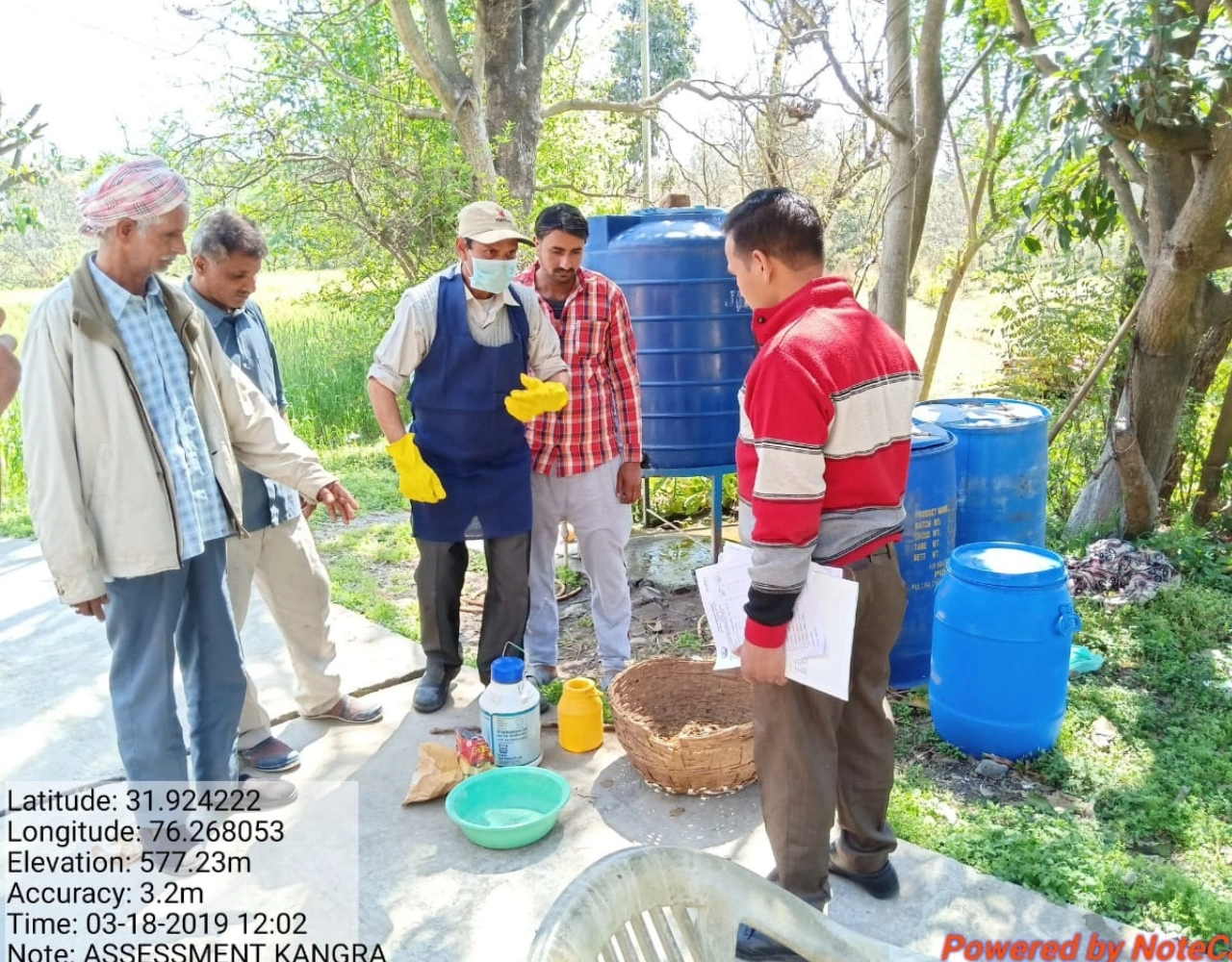


NSDC is a public-private partnership that supports the skills development ecosystem in India and funds effective private sector skills training initiatives. NSDC is nodal agency for implementing Pradhan Mantri Kaushal Vikas Yojana (PMKVY).

Agriculture Skill Council of India (ASCI), established as Section 8 Company under the Companies Act, Ministry of Corporate Affairs, works towards building capacity by bridging gaps and upgrading skills of farmers, farm & wage workers, self employed.

PORI has specialized in biological products for agriculture applications. Through R&D the institute has developed many products for agriculture requirements from soil management to disease and pest management, plant nutrient.
Patanjali Farmer Samridhi Programme is working in Mission Mode for SKILL DEVELOPMENT on organic farming, and conducts training to the farmers on organic farming and also provides support with low cost inputs like bio-fertilizers & bio-pesticides, technical assistance from a team of eminent agricultural scientists of PORI, facilitating in certification & buy back by Patanjali provided the desired quality is maintained as well as facilitate the sale through other sources resulting in increasing the efficiencies in marketing. The intervention has helped farmers to
increase their income through:
1. Reduction in cultivation cost: High cost chemical fertilizers are being replaced with Organic fertilizer and compost (cost is less compared to chemical fertilizers), integrated pest and weed management supported by use of bio-pesticides and nutrient management techniques. This helps in saving of expenditure on chemical fertilisers and pesticides and in improvement of soil health and fertility.
2. Value added organic farm produce: Better price is realized due to chemical free farm produce. Patanjali promotes crop varieties available with ICAR Institutes and SAUs which add value to the produce, address malnutrition and hidden hunger. Buyback arrangement with Patanjali and other stakeholders help farmers to get higher price at their farm gate, thus reducing middleman and transportation hassles.
3. Group farming: Group farming helps in organizing farmers as SHG/Cooperatives/FPO etc, which gives strength to their negotiating power, reduces the cost of inputs, avail group based subsidies provided by government for establishing custom hiring services for cooperatives, aggregate the produce for collective marketing as per the demand and supply.

Patanjali Farmer Samridhi Programme is working in Mission Mode for developing skills on organic farming.The intervention is helping farmers to increase their income.

Under the programme on-farm training to a group of 20-30 farmers in each Farm Lab established across the country and involved in “Organic Farming” and “Group Farming.mers to increase their income.

Patanjali has identified 24 Master Trainers who have undergone training and certification from ASCI. Entire Process is being followed in a five stage framework.

The mobilization of eligible farmers for the identified job role is done as per the norms to select potential candidates.
The pre-screening and counselling of the candidates, self-assessment and supporting documentation is done.
The orientation and training covers the domain training, soft skills & entrepreneurship tips.
The assessment of Organic Farmer and Group Farming Practitioner is conducted.
Agriculture Skill Council of India validates and approves the results. Successful candidates are provided with certificate, job role kit and skill badge.
Skill training for Organic Grower and Group Farming Practitioner in Mission Mode by Patanjali Farmer Samridhi Programme (PFSP).
Copyright © Patanjali Organic Research Institute 2026. All Rights Reserved.